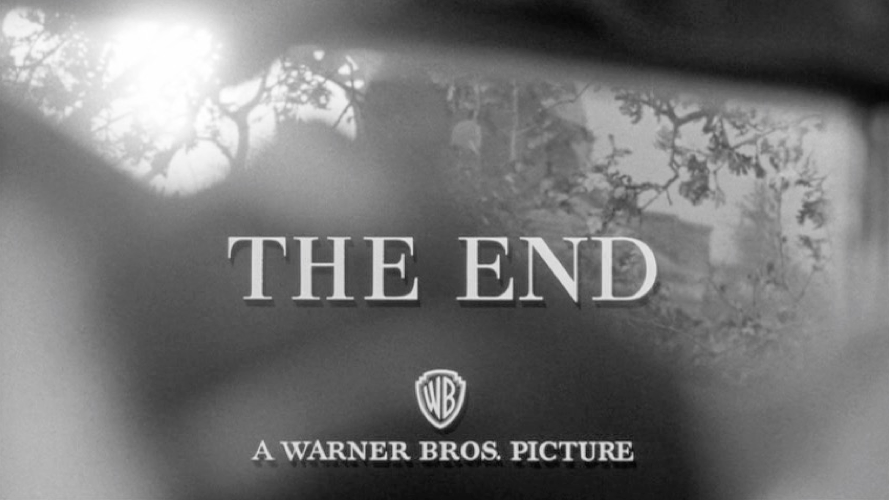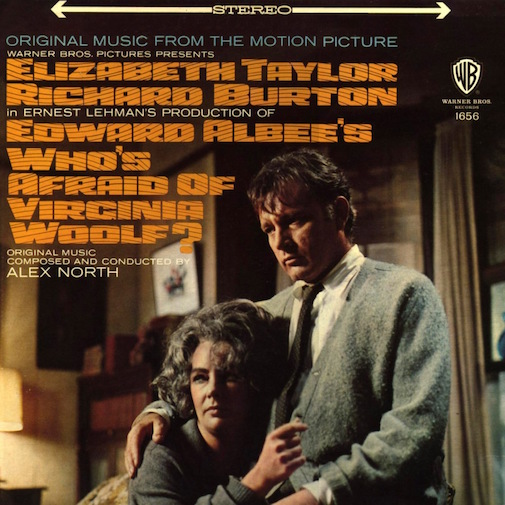 Who's Afraid of Virginia Woolf? (1966)
Who's Afraid of Virginia Woolf? (1966)
Directed by Mike Nichols | Adapted by Ernest Lehman from the play by Edward Albee
Released by Warner Bros on June 22nd, 1966
Nominated for 13 Oscars, winning 5.
Four-Part 50th Anniversary Celebration
Pt 1 "What. A.Dump!" by Nathaniel R
Pt 2 "Firing Squads & Flop Sweat" by Daniel Crooke
Pt 3 "Get the Guests" by Kyle Stevens (author of "Mike Nichols: Sex, Language, and The Reinvention of Psychological Realism"
...and now the finale
Pt 4 (Finale) by Chris Feil
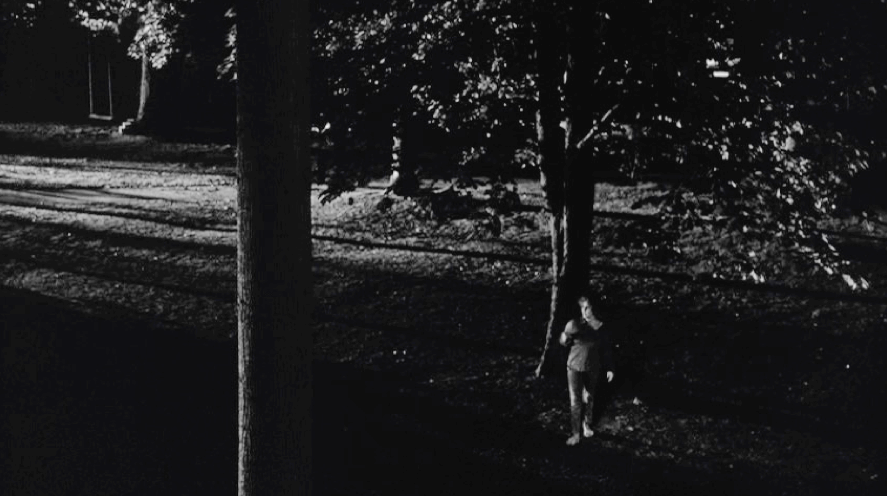
Clink.Clink.
1:36:43 Sounds like Martha put her own ice in her drink this time, and not chewed it down. She's also dispensed of her tight "Sunday chapel dress" for looser fits. At only 3 outfits, Who's Afraid of Virginia Woolf? is surely Elizabeth Taylor's fewest costume changes ever on screen.
1:37:32 Nick’s putting his watch on now that their real round of Hump the Hostess is over. By the looks of these two, it wasn’t exactly earth-shattering to say the least.
Martha starts doling advice to Nick on how to take care of a drunk Honey, not unlike George's begrudging earlier attempts. The kind motherly expression on her face makes you wonder if her son has always been blonde-haired and green eyed before tonight.
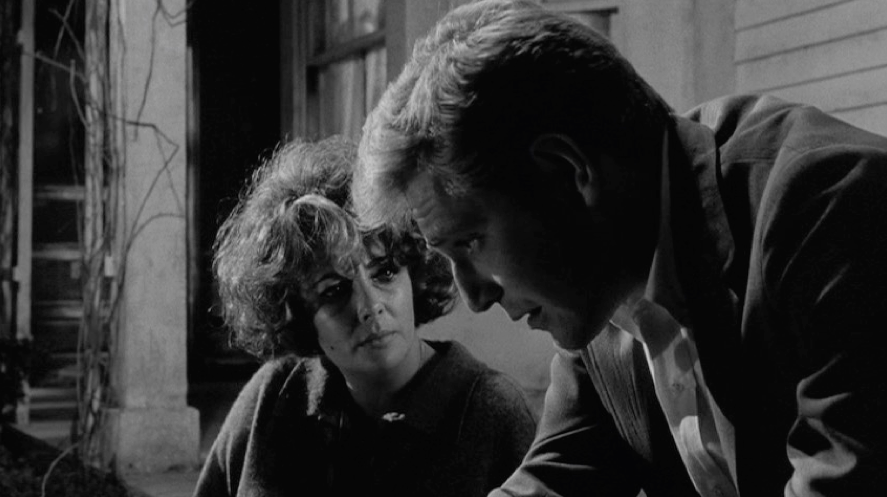
1:39:00 Nick's pointing fingers as if he's exempt from the night's cruelty and absurdity. Luckily, Martha calls him out on his hypocrisy.
Relax. Sink into it. You're no better than anybody else.
He can't help but whisper "I think I am", almost ashamed. Nick can often be flat in productions of the play due to the character's inherent pompous beigeness, but George Segal lets Nick's self-loathing spill out almost by accident. Martha knows exactly how to get him where it hurts: "Well, you’re certainly a flop in some departments." He blames the booze, but is awfully defensive if it was truly out of his control. He calls Martha out on her own superiority complex, to the reply of her iconic line:
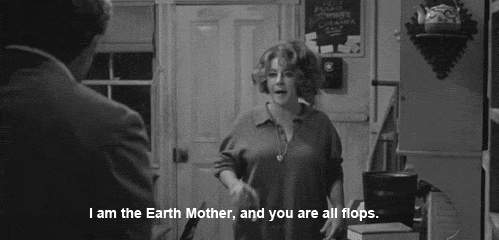
1:39:48 But "I disgust me" she spits out. That's where Martha has one up on Nick: at least she is honest about her own brand of self-hatred and superiority. Nathaniel mentioned Taylor's smarts in tossing aside potential scenery chewing dialogue, but in this iconic moment she shows that Martha only half believes her grandest proclamations.
Martha's revulsion launches her straight into one of her many brilliant monologues, this time about how George is the only man to make her happy. Nick listens with judgmental disbelief. Kyle spoke about the paradox of George and Martha's compassion and disgust in Part 3's showdown, but here is the softer side to the paradoxical coin.
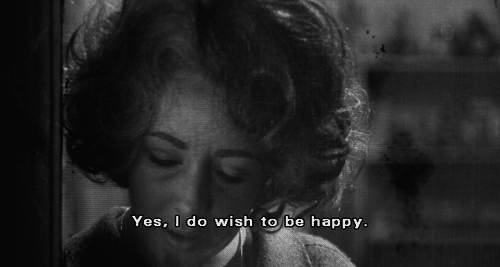
George... who is good to me, who I revile. Who can keep learning the games we play as quickly as I can change them. Who can make me happy and I do not wish to be happy.
This monologue is where the age disparity between actress and character are most obvious, though to the film's benefit. Taylor has the believable weariness of a woman decades her senior, butthe acting choices here are those of a younger actress. Somehow this plays like the young girl brought out in Martha, one simultaneously before and after life's disappointments got ahold of her. You can see years of past brawls, lies, and caustic joys right there on her face.
Who I cannot forgive for having coming to rest, for having seen me and having said 'Yes, this will do.' Who has made the hideous, the hurting, the insulting mistake of loving me and must be punished for it.
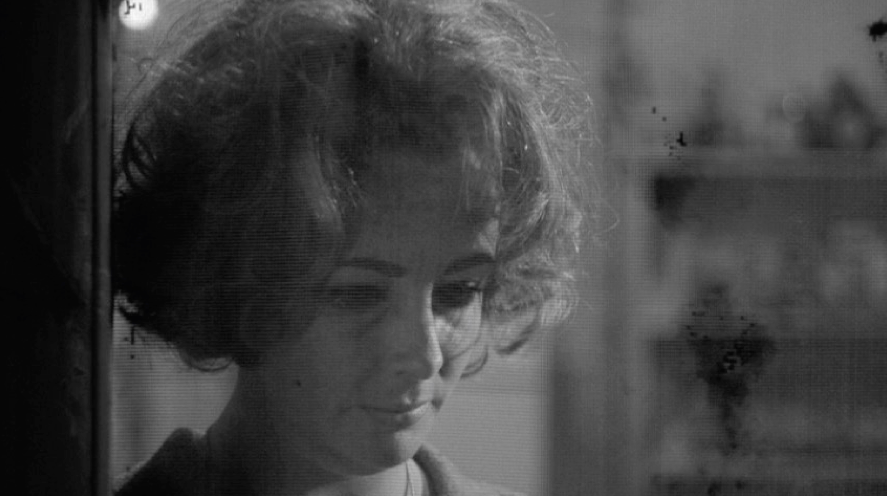
The magic of Liz's performance here is that it exposes Martha's profound affection for George as much as it does George for Martha. Her self-loathing is so vivid that it also paints the man who loves her all the same. "George and Martha. Sad, sad, sad."
Does the ending even work if she doesn't nail this monologue?
1:42:22 And back to the icebox. How late is too late for more chicken wings?
1:43:13 Martha's not only poking fun at Nick's sexual attempts, she's calling out his motives too. Nick's face doesn't deceive that his flirtations with Martha were at least in part to stir some secondhand favor with red-eyed Daddy, but he also looks a little surprised she caught on (even hurt to have his real sexual attractions cast aside). His superiority complex and lack of self-awareness once again making him underestimate the older marrieds.
Martha: Well you can just houseboy your way up the ladder for awhile.
Nick: There's no limit to you is there?
Martha: No baby, now go answer the door.
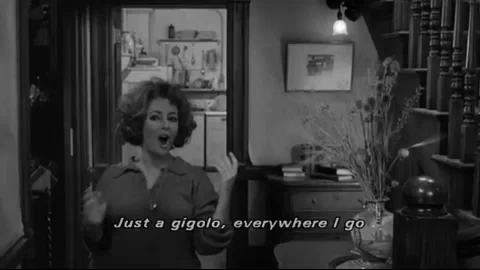
Martha takes as much delight in plying Nick's fragile masculinity as George, but she is way better at it.
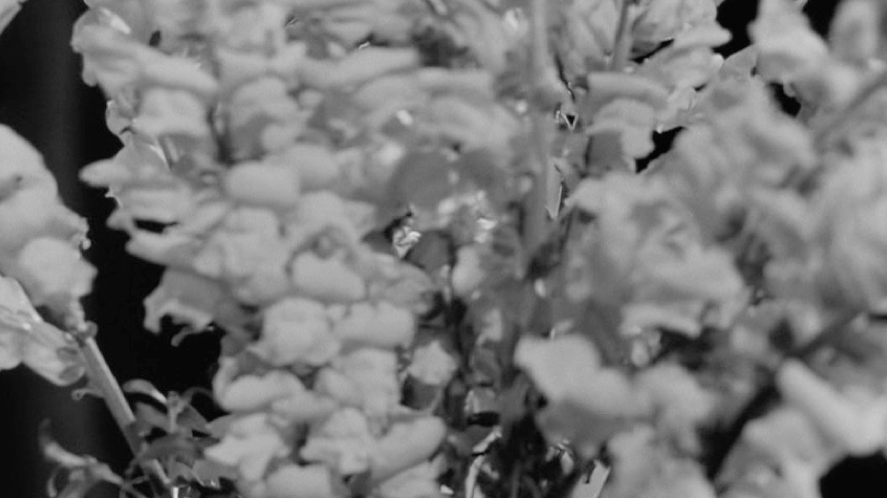
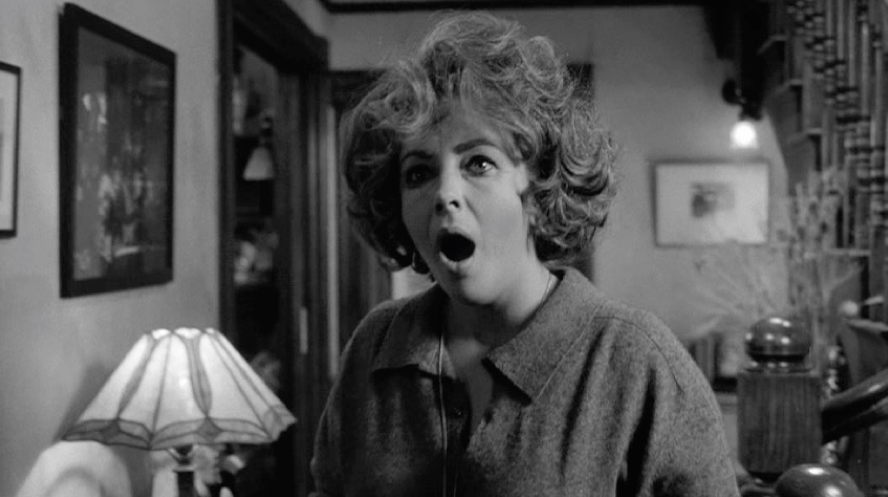
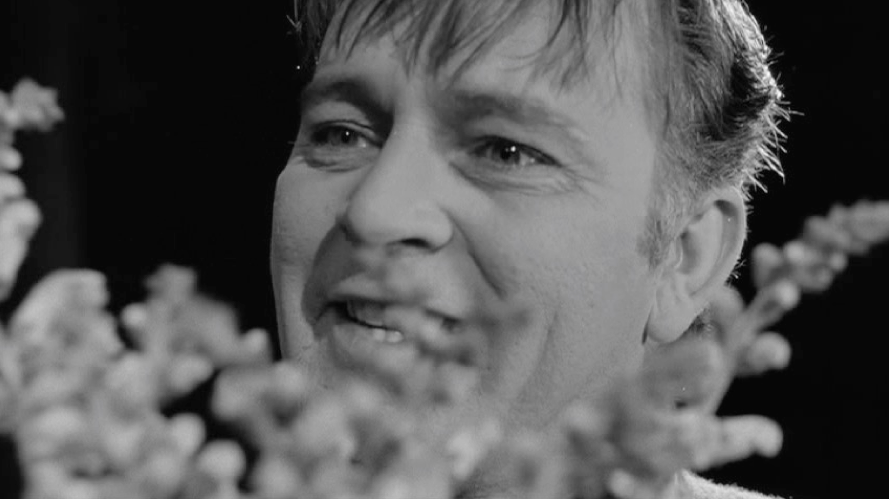
1:44:02 "Flores. Flores para los muertos" Is the reference to A Streetcar Named Desire meant purely as a Tennessee Williams wink or does it serve to foretell Martha’s coming devastation? It's George at the door, emerging from his flowers likes a wide-eyed monster.
George "confuses" Nick as the blue-haired, blonde-eyed son we've been hearing a lot about. Maybe Nick has inspired more than Martha...
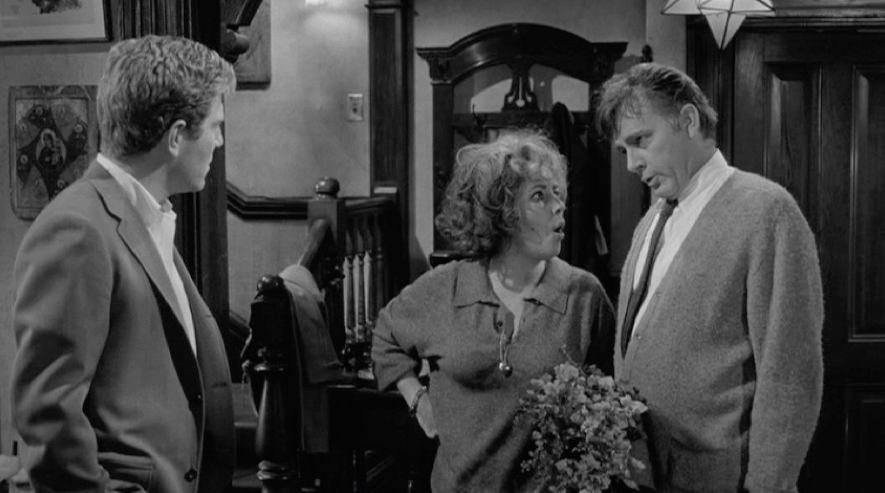
Here's Martha and George standing in solidarity for the first time since before the field trip to the bar - nothing like a common enemy to unite a front. Has she just drunkenly forgotten their aggressive blowup or is it relief that he's finally come out from where he was hiding?
1:45:22 If Nick thought his performance issues wouldn't be brought up in the games, he's quickly mistaken. George drops it, but you can tell when he is just saving information for his arsenal.
Nick: Hell I don't know when you people are lying or what.
Martha: You're damn right!
George: You're not supposed to.
Nick again either slow on the uptake or he just needs more warming up to get into the games. It doesn't take him long once the conversation goes back to George's parents.
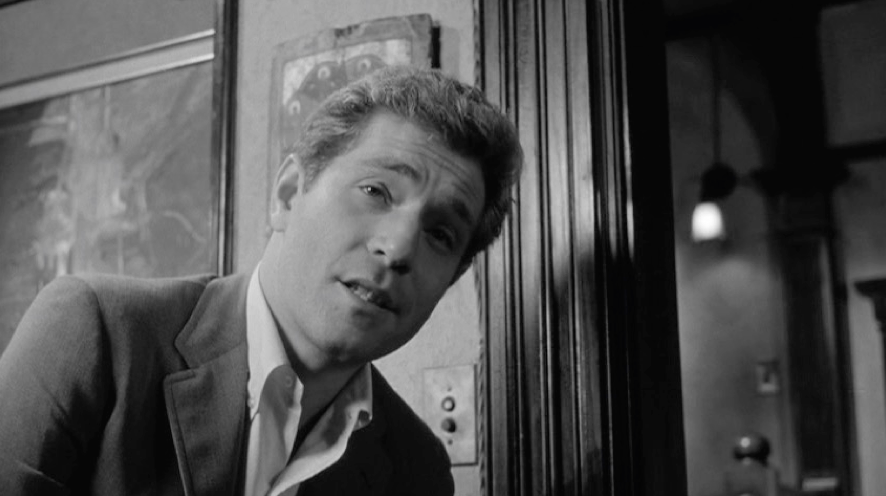
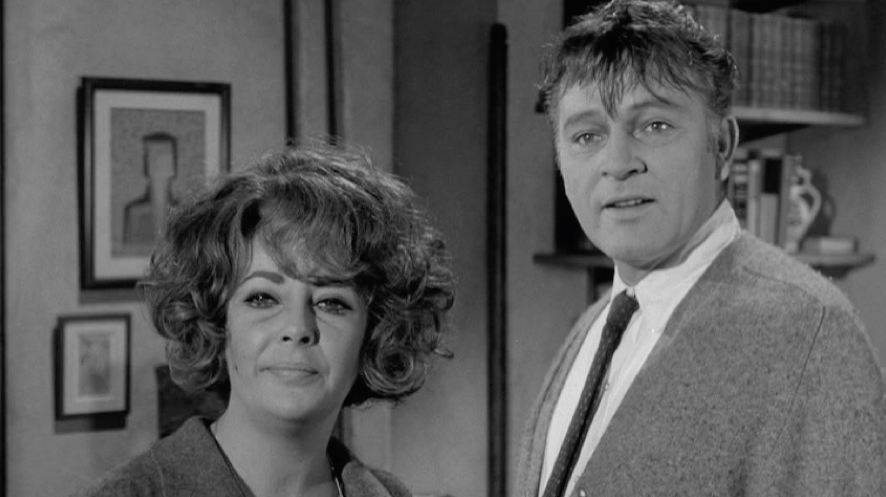
Nick: Was this after you killed them?
George: Maybe.
Martha: Yeah. And maybe not, too.
If Nick is going to join in on the game, then George might as well get back to the houseboy nagging. The toxic masculinity that plagues both George and Nick is that if you're not a virile stud, then you must be an emasculated mouse. Bonus points if you physically or mentally overpower your opponent and double bonus points if you're a mouse overpowering a stud. Enough double bonus points and you shed your mouse status.
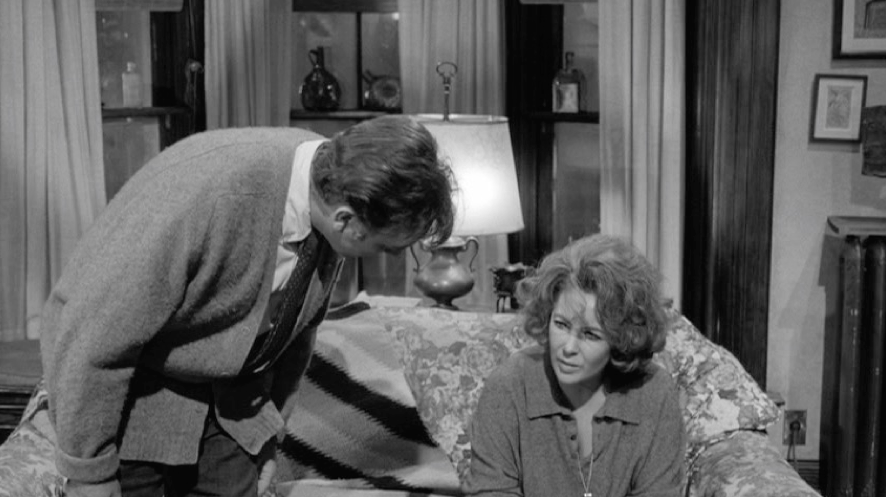
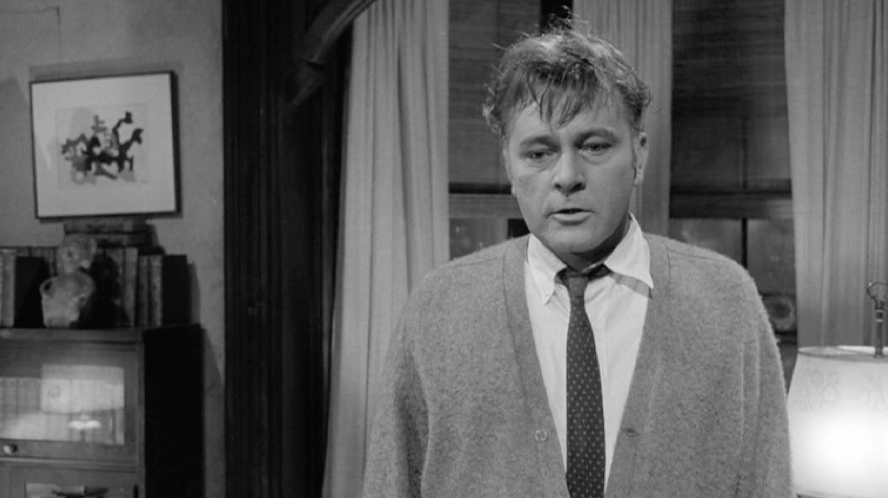
But Martha refuses to play along suddenly: "You're not a houseboy." Maybe she is bestowing a kindness by changing her tune or maybe she doesn't buy into the houseboy/stud binaries in George and Nick's dick measuring contest. After all, George has been set up as the ultimate houseboy and he's the one that makes her truly happy by her own admission.
Now George gets to turn Martha's phrasemaking back on her: SNAP! Tossing the the flowers he brought at both Martha and Nick, he trivializes her previous speech while showing her that he's past his stone cold breaking point too.
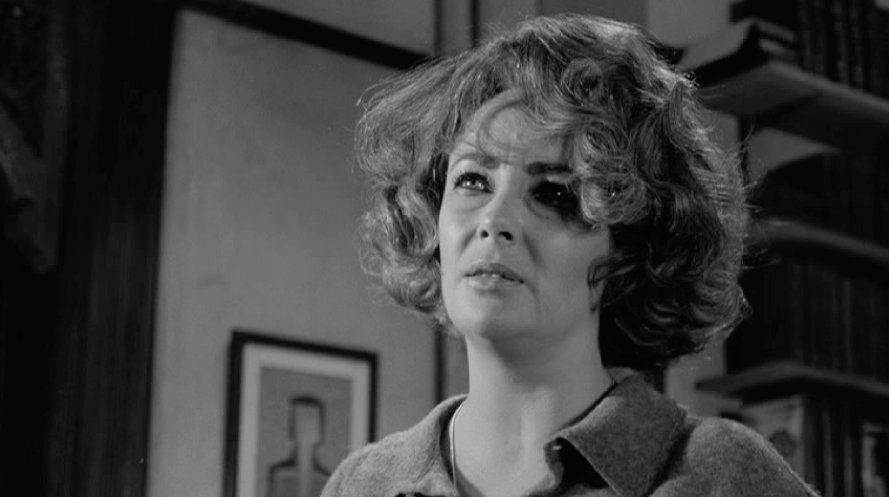
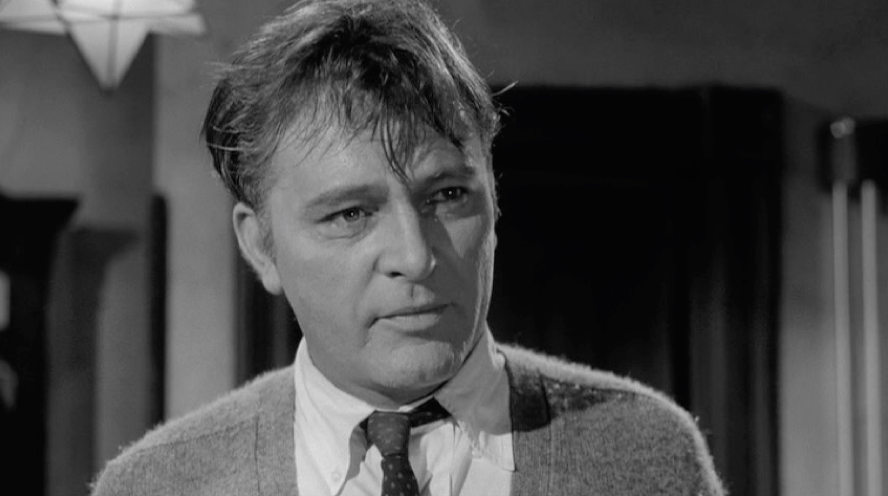
Martha: Truth or illusion. Doesn't it matter to you at all?
George: Snap. Got your answer baby.
Martha gets the first inkling of what's about to happen and backs down.
1:48:20 George has a final game in mind - Bringing Up Baby - and by now we should know it means something darker than his Hepburn impersonation, though he'd probably give Martha's Bette Davis a run for its money. These games work better with pairs, so Nick is off to fetch Honey from the bathroom.
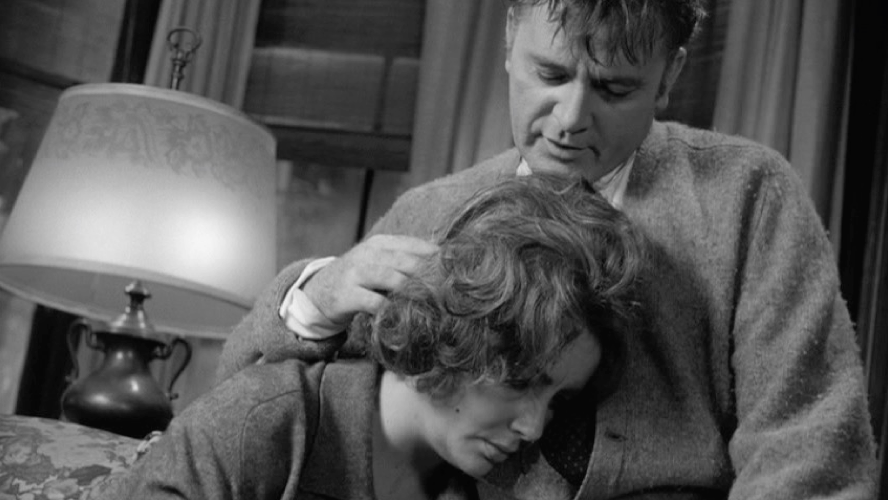
Martha's skating close to a blackout or maybe just tricking George with a pout. She's done with the games, but he's not letting her off that easy. In Albee's original script, this act is called "The Exorcism" for a reason. Aptly titled - we can't just pack up and run away from our inner demons, they have to be eradicated by force.
Like each of this mini-series authors, I also discovered and became infatuated with Virginia Woolf before adulthood: you know you're a weird kid when Burton's George is one of your fashion icons. Being too young an age to grasp its complexity, I adored it for its emotional peaks and valleys without fully catching the gender politics and crossed lines that make the text so charged. It's only being married now that I begin to understand the sacrifices that George and Martha make for each other, that accepting (even loving) what's ugliest of the other person means nothing if you can't cope with the worst part of yourself. That even unhealthy relationships are made together through compromise, that you can't heal through delusion.
We can stand in judgment of George and Martha for their cruelty to one another, but they understand each other to the core in ways we cannot imagine. The system they've negotiated for their marriage is their own but it can't hold up forever, something this night has made all too clear. It's up to George to start the final Game, Bringing Up Baby / The Exorcism before the games break their collective back.
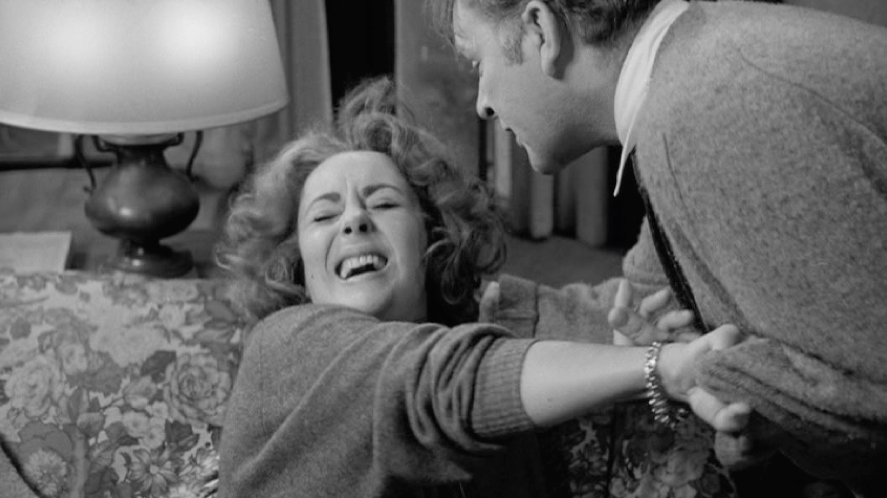
1:50:08 But back to cruelty, first. George wants to rile Martha up with some aggressive provocation to get them on equal footing before the final showdown. Her tired, drunken vulnerability won't do if they're to destroy each other. It works.
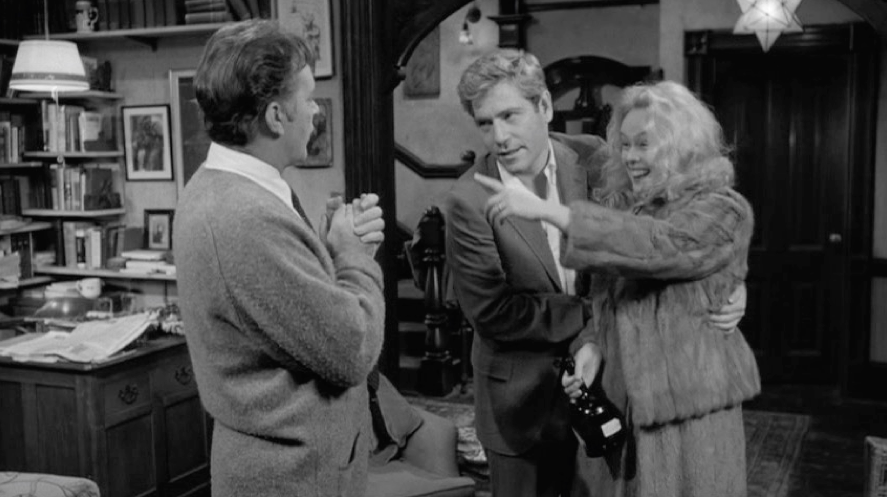
Honey returns, hopping into the scene. She hasn't sobered up a bit, but at least she's in brighter spirits after having her secrets viciously aired out.
Nick: Are you a bunny, Honey?
Honey: I'm a bunny, Honey.
George: Well now, how's the bunny?
Honey: Bunny funny!
Albee adds so many layers to Honey by naming her with an emotionally reductive term of endearment, surely not her true name. Lacking a real name reduces her individuality, ever more forced into the doting housewife role that she doesn't know how to play. A "Honey" is something you take care of or keep in line, something expected to be sweet and small. With this dubbing, Albee puts the weight of patriarchal marriage expectations around her slim hips. Not so funny, honey - no wonder she implodes.
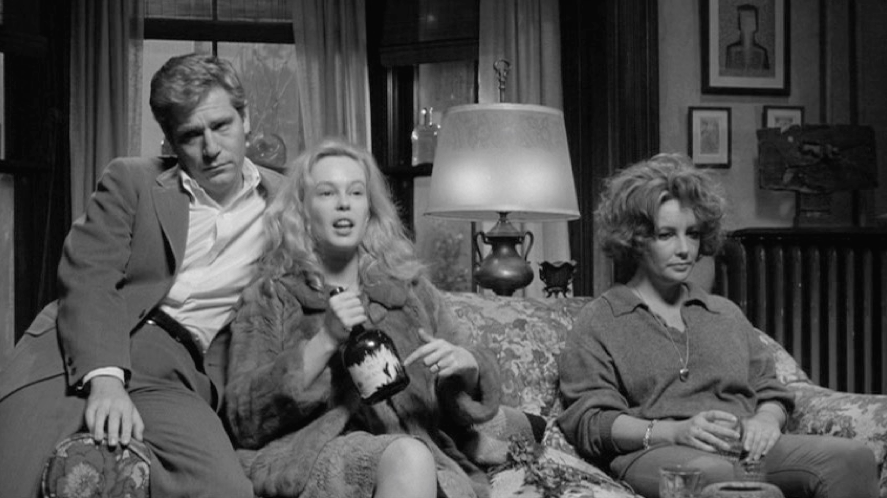
1:51:21 "I peel labels." She may be white girl wasted, but tonight she's maybe learned something about peeling her own label.
“We all peel labels, sweetie.” George gets typically grandiose, biologically so, about getting to who we are at the core, and the cards come out. "Now take our son..."
Sweaty Honey locks eyes with George, both confused and conspiratorial. Our simpleton is the first to sense where this is headed, as Martha's triggers at the topic indiscriminately. Before he gets to the point, George is going to play dirty as she did in the car, swinging with similar low blow accusations of Martha clawing at the son and attempting to wash him past an appropriate way. "Honey" feels some kind of way about it.
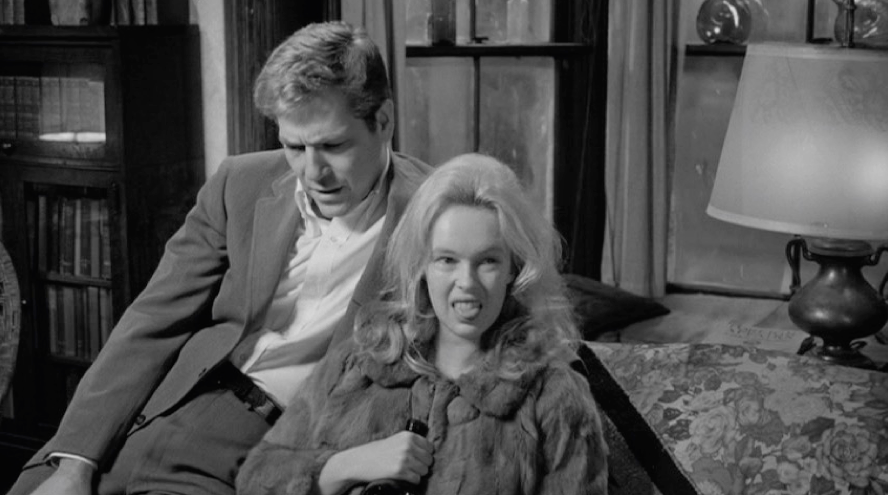
1:53:24 But Martha gets to have her say about their son, and George concedes.
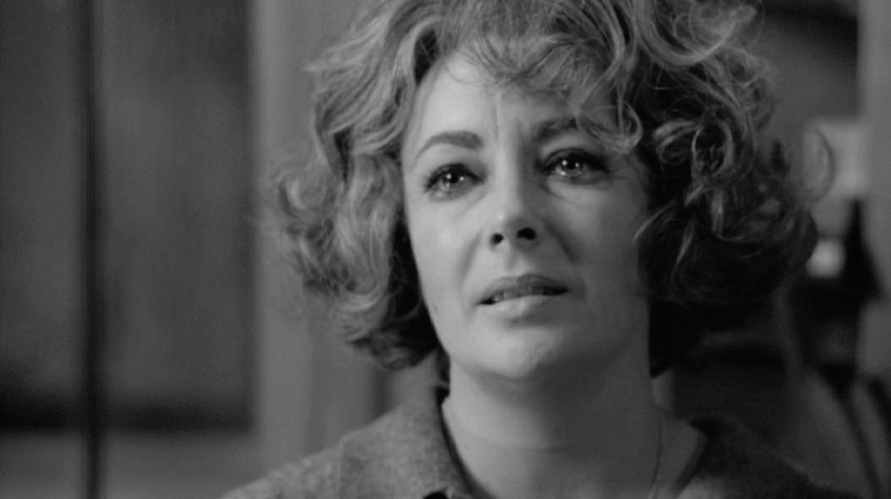
George and Martha negotiate the particulars of his birth, but then she's free to bask in the glow of her parental adoration. She's framed in opposite profile to her kitchen monologue about George, here their infinitely complicated romance swapped for the blinding clarity of parental joy. Again the youthful Martha resurfaces, the hopes she once had reawakened in her eyes.
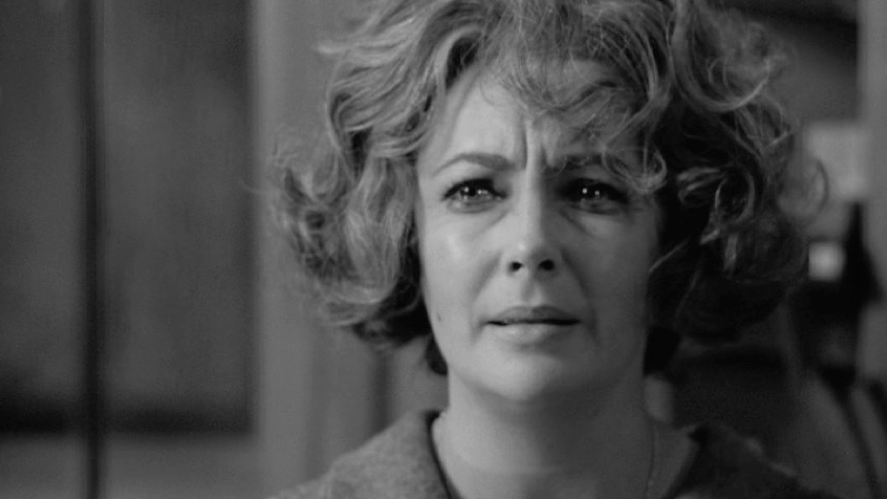
Unlike her George soliloquy, this speech is one unbroken take. We get to see Liz live in it as Martha relives these details she’s recounted in her head countless times. This quickly becomes more for herself than for the room. If her speech about George was the reality, this flipside framing begins to feel like expectation. Truth and illusion.
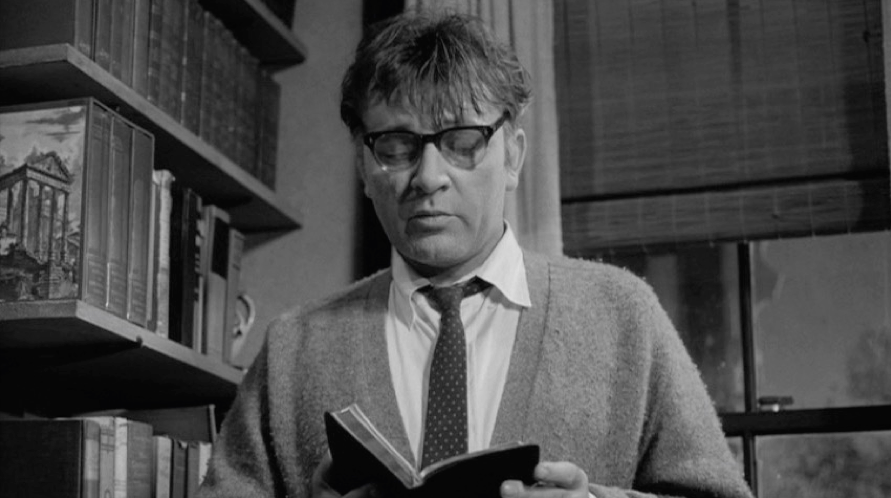
1:55:31 As George recites a Kyrie Eleison, it begins to become painfully clear...
"I want a child! I want a baby!" Honey cries. Is it that she really wants a child or is it that Martha's hope for something more has invoked the need for something of her own? Her look to Nick is more defensive than reaching out for comfort.
1:56:30 George and Martha begin to overlap and the editing builds like the previous fights. It's coming to a head as Martha goes on the attack against George in defense of their son.
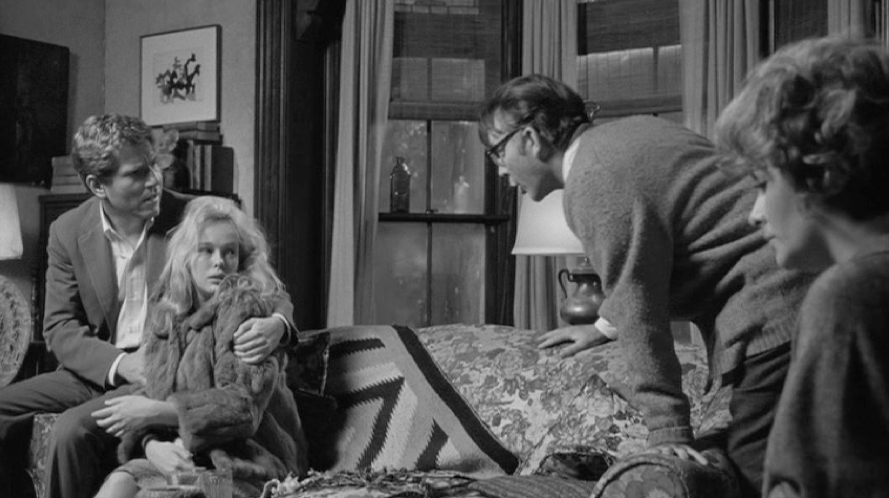
Honey calls for a ceasefire, finally certain of the point of this game. Sandy Dennis makes every act of defiance as if Honey has never stepped a toe out of line and here she's had enough, even as she chokes the words. George doesn't listen and cuts to the chase.
Apparently a telegram was delivered by a young man earlier.
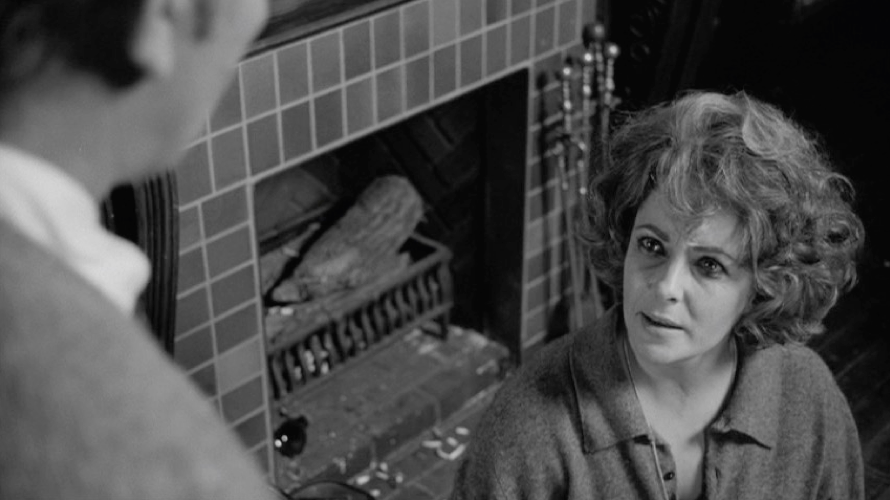
Crazy Billy?
Any bets on whether Crazy Billy exists? I guess every town has one, even the fake ones in your mind.
By now, if the depressing truth isn't clear, the improv nature of their battles that Kyle pointed out previously should be apparent.
1:58:58 "Martha, our son is dead." He drove his car into a tree, in a death that sounds all too familiar to others we've heard about that may or may not have happened.
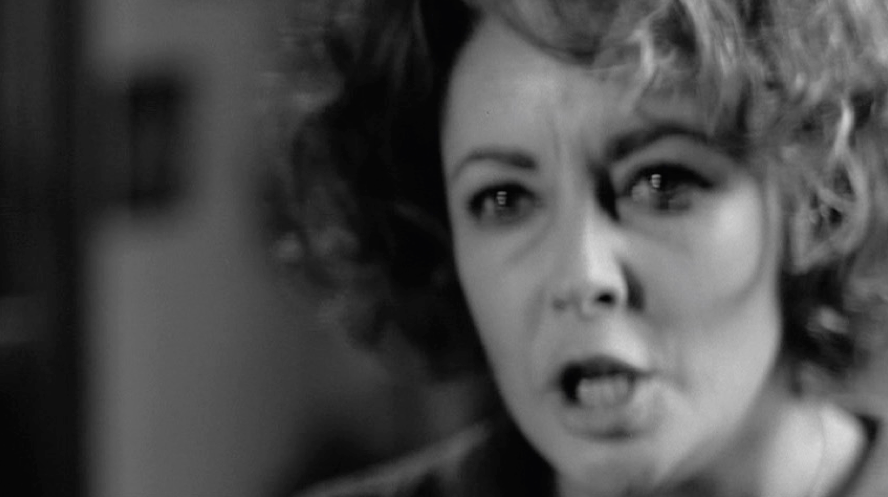
You can not do that!
In a flash, Martha goes in and out of focus as if her fury made the camera blink. George broke the improv rules and said no. Now it's her turn to get aggressive
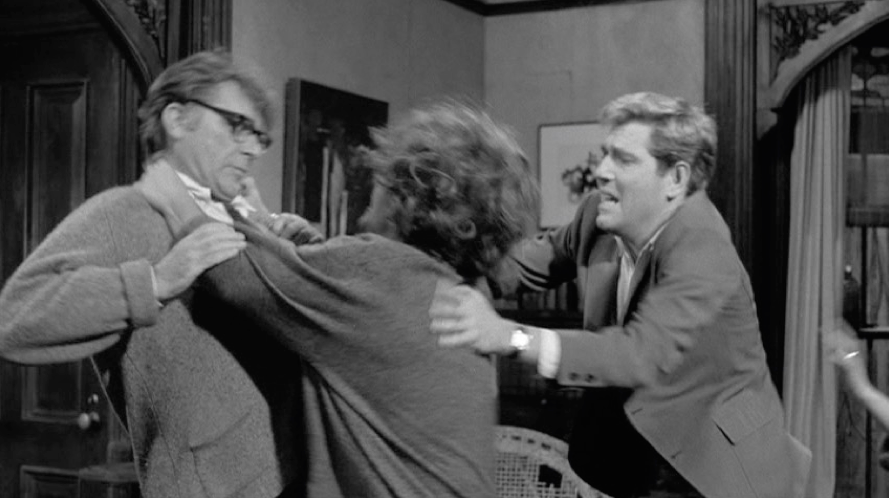
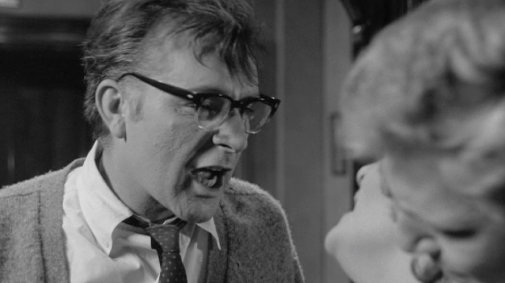
Now listen to me carefully: We got a telegram, there was a car accident, and he's dead! Poof! Just like that! Now how do you like it?
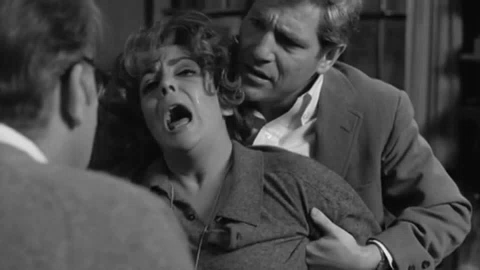
A primal scream from Martha as she realizes he didn't break the rules, he just passed her a "yes and" that she thought was out of bounds.
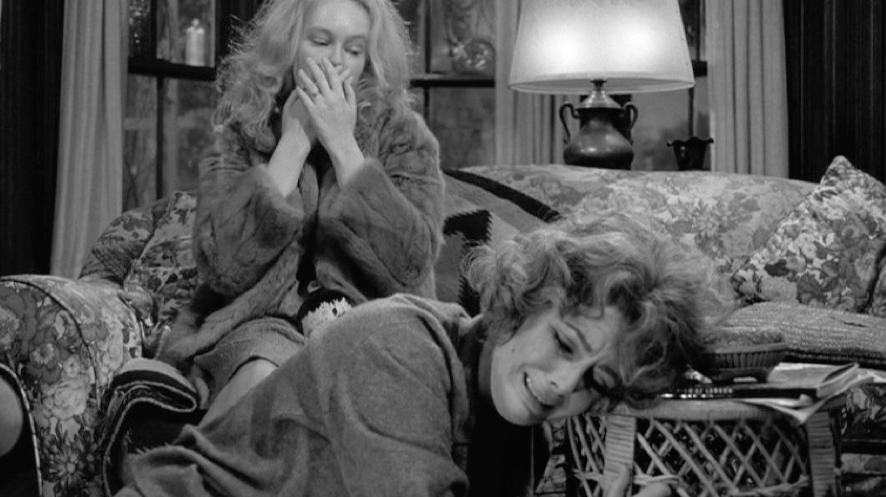
2:00:33 As Martha crumbles, Honey stares down at her - is she looking at her future? Nick comforts her, still not getting it.
Martha tries to trick George back into the game by demanding to see the telegram, but George seals the debate by claiming to have eaten it - his crushed compatriot Honey confirms. Martha reluctantly admits defeat by spitting in George’s face.
Nick finally gets it, always the last to catch on. Welcome to the party, Nick. Martha tries to negotiate, but it she that broke the rule of mentioning the son to someone else. Honey chimes in to remind Martha.
2:02:30 How long has Martha been holding on to this dream, sitting alone in crowded rooms comforting herself with a phantom reality? Her deepest sobs yet come from exposing how this willful delusion has comforted a deep loneliness and masked profound regret. The rawness of the moment in unprecedented even by the film's own cutting standard.
I forget. Sometimes when it's night and it's late and everybody else is talking, I forget and I want to mention him, but I hold on!...
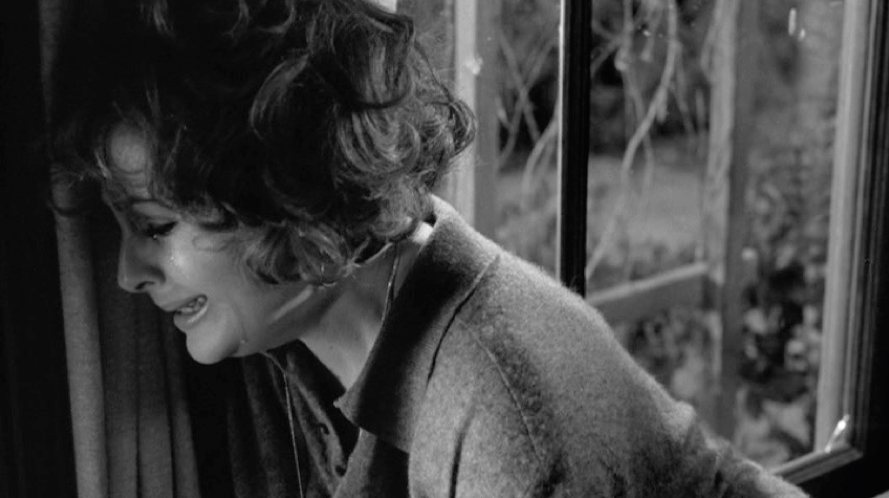
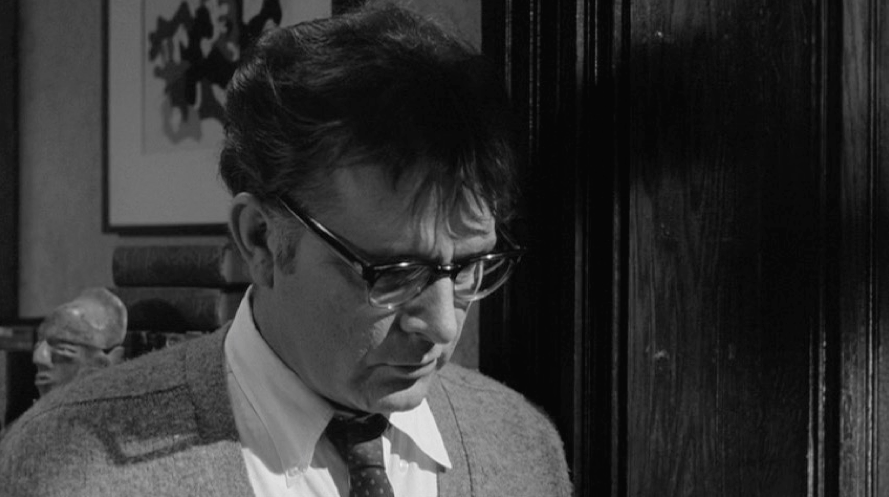
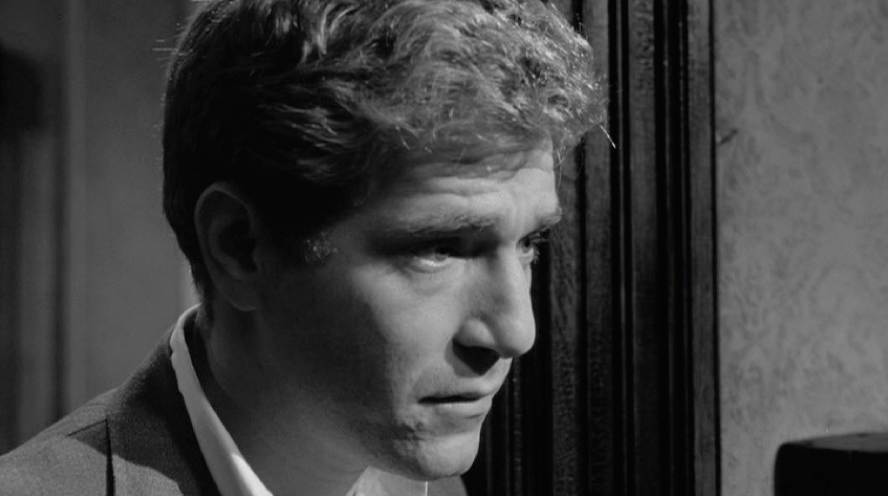
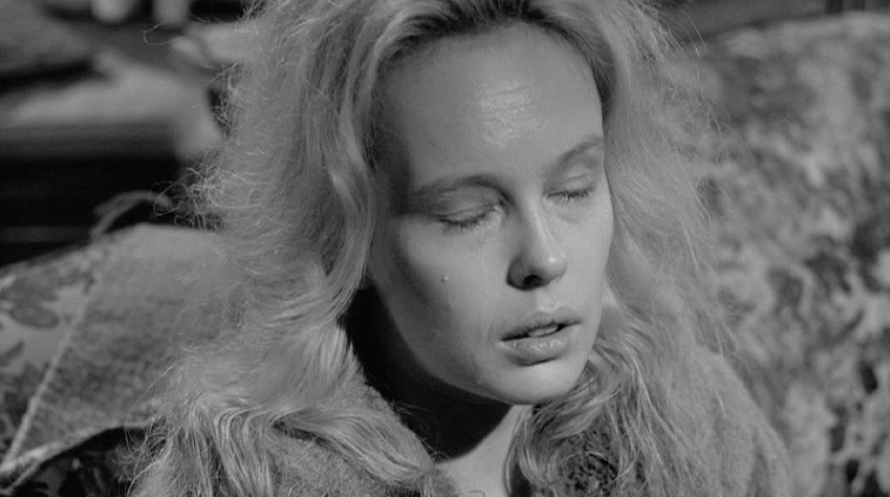
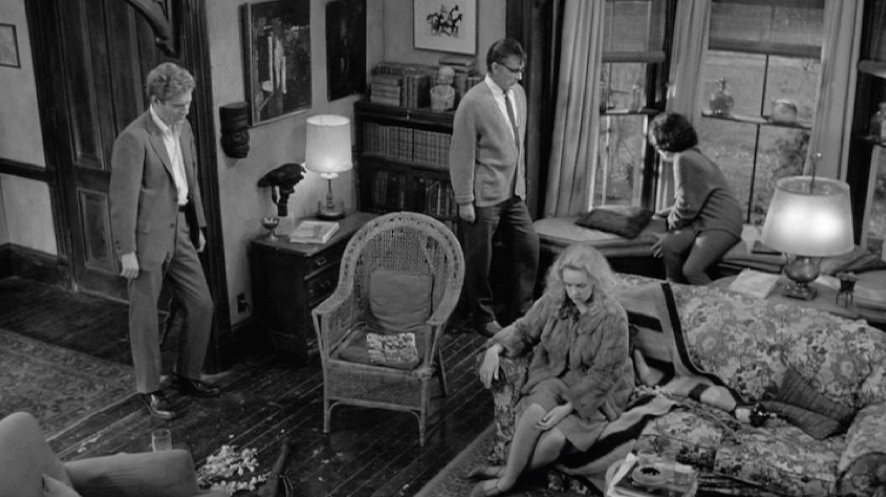
Earth Mother, Swampy, Houseboy, Funny Bunny Honey, Each shattered.
The wide shot here is especially devastating after Martha's breakdown. This final revelation doesn't belong to just Martha and George but to the guest couple that has also submitted to their own delusions in the name of self-preservation. The silence is punishing, but when facing the harsh light of everything we lie to ourselves about in order to sustain, what is left to say? Nick asks the crucial question.
Nick: You couldn't have any?
George: We couldn't.
But the son is so much more than progeny: he stands for all of the lies that they were promised, the hopes they had cast aside. What else couldn't they have?
Nick and Honey leave hand in hand, their quiet affection suggesting they will have plenty to talk about after the hangover fades. Who's to say if the conversation goes well.
George and Martha alone again, naturally. One of the gorgeous intangibles of Richard Burton's work is the affection you can feel in his silence. Even after all of the emotional bloodletting, the air is charged with his love for Martha - but maybe that's a quiet electricity that you only get when two costars are actually in love.
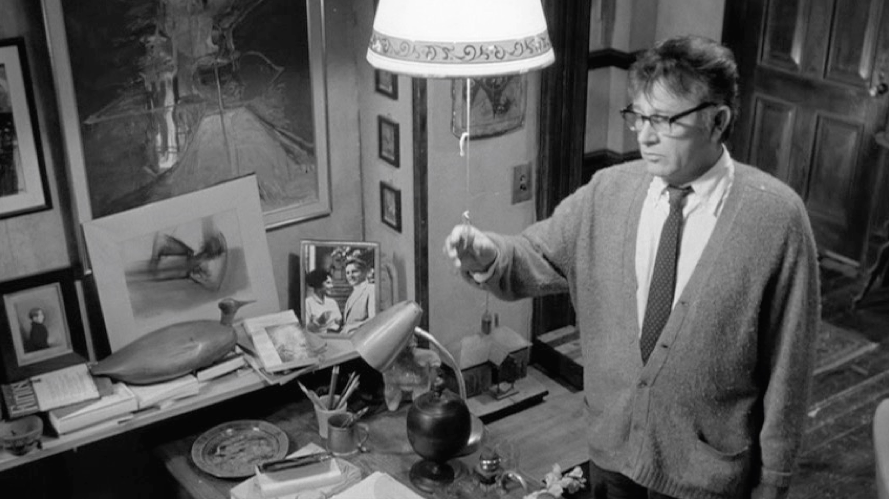
2:05:34 There among the production design is what might be a wedding picture of George and Martha. From our vantage, it's as blurry and obscured as the truth in the lives the two have made for themselves. But then and now, they love each other.
As the score comes in and George begins to hold Martha, she begins her final bit of negotiation.
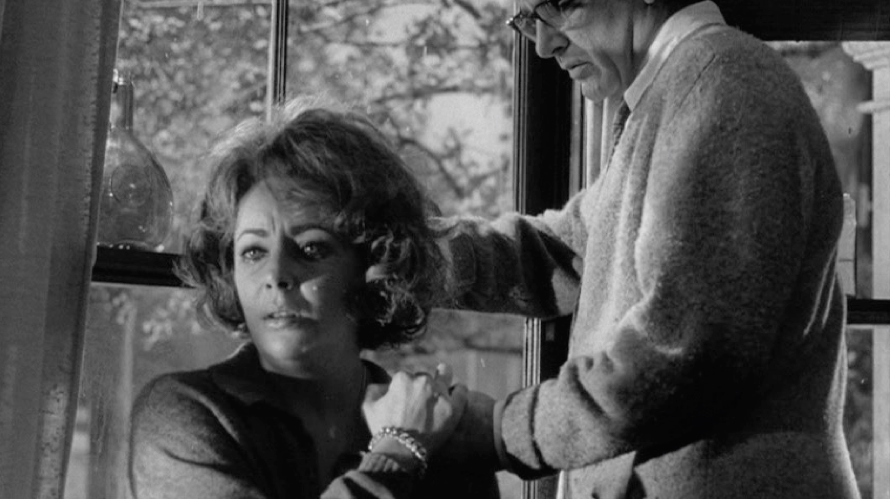
Martha: Did you have to?
George: Yes. It was time.
Martha: I don't know.
Martha may not be so sure, but George's softness reveals that this final game was an act of compassion, a final attempt to move on from their mutual bitterness and disappointment. Normally never at a loss for words or volume, this moment is sparse and painfully quiet.
George starts in on "Who's afraid of Virginia Woolf, Virginia Woolf, Virginia Woolf?...", as Martha finally returns his loving grasp. "I am, George. I am." We'll never know what that affirmation means, the nursery rhyme still an inside joke we'll never understand as Nathaniel pointed out at in the first installment.
Like that joke, George and Martha's union is its own riddle that we'll never fully comprehend. We can be shocked by their verbal barbs, their alternate reality, their grotesque gameplay - but they're just speaking their own language developed over years of accepting and loving eachother's bullshit. That language may not be our own but no couple (happy or not) is without its secrets and microagressions. George and Martha batter each other as much as life has battered them, but they face it together.
A slow pan into George and Martha's gripped hands ends the film. The picture blurs, but the bond stays.
